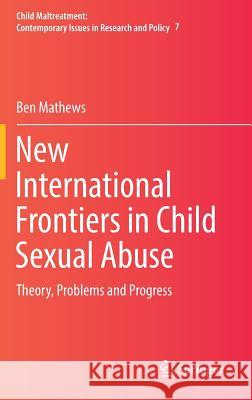New International Frontiers in Child Sexual Abuse: Theory, Problems and Progress » książka
topmenu
New International Frontiers in Child Sexual Abuse: Theory, Problems and Progress
ISBN-13: 9783319990422 / Angielski / Twarda / 2018 / 307 str.
Kategorie:
Kategorie BISAC:
Wydawca:
Springer
Seria wydawnicza:
Język:
Angielski
ISBN-13:
9783319990422
Rok wydania:
2018
Wydanie:
2019
Ilość stron:
307
Waga:
0.63 kg
Wymiary:
23.39 x 15.6 x 1.91
Oprawa:
Twarda
Wolumenów:
01
Dodatkowe informacje:
Wydanie ilustrowane











